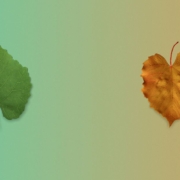Artificial Intelligence and the Christian Faith
In our rapidly advancing world, Artificial Intelligence (AI) has emerged as a transformative force, bringing both benefits and challenges to society.
In our rapidly advancing world, Artificial Intelligence (AI) has emerged as a transformative force, bringing both benefits and challenges to society. As Christians, it is important to reflect on the implications of AI through the lens of our faith. Considering the pros and cons of AI from a Christian perspective allows us to navigate its impact with wisdom and discernment.
AI technology has the capacity to enhance medical diagnoses, advance patient care, and contribute to the development of life-saving treatments. Christians value the sanctity of life and can appreciate the potential AI holds for preserving and improving it.
AI can also automate repetitive tasks, freeing up human energy and time for more meaningful pursuits. This increased efficiency aligns with the Christian calling to steward our resources wisely and use our talents to their fullest potential.
However, AI raises ethical questions surrounding privacy, data security, and decision-making processes. As Christians, we are called to protect the dignity and rights of individuals, ensuring fairness and justice in the use of AI technologies.
Excessive reliance on AI can also lead to a devaluation of human interaction, empathy, and compassion. Christians are called to love our neighbors as ourselves, and we must be cautious not to replace genuine human relationships and care with technology.
We should reflect on the implications of AI through the lens of our faith
From a Christian perspective, the discussion surrounding the emergence of AI in our society demands our attention and careful consideration. While AI holds tremendous potential in improving healthcare and increasing productivity, we must approach its deployment with ethical discernment. By upholding human dignity, safeguarding privacy, and remaining mindful of the potential risks of dehumanization, we can contribute to the responsible and compassionate development of AI. In these discussions, let us be guided by our faith, to ensure that AI technologies align with our values and promote the common good for all.
Hello. It’s Eliezer Gonzalez here. This is the real me. But everything you have just read up to this point in this blog was written by an AI bot.
It sounds OK, doesn’t it? But there’s something very important missing, and it’s something that a robot will never be able to replace: humanity.
Humanity is so vitally important that God himself became human in order to relate fully with his creation. God could have sent a hologram of himself down to earth to let humanity know what he was like. He could have come himself entirely in his divine nature. That would really have been impressive!
Human beings are highly exalted in the creation of this world
But that’s not what God did. He became a human, called the incarnation, and was born as we are born, to live as we live, and to experience what we experience. The book of Hebrews puts it like this,
We also know that the Son did not come to help angels; he came to help the descendants of Abraham. Therefore, it was necessary for him to be made in every respect like us, his brothers and sisters, so that he could be our merciful and faithful High Priest before God. Then he could offer a sacrifice that would take away the sins of the people. Since he himself has gone through suffering and testing, he is able to help us when we are being tested. (Heb. 2:16–18, NLT).
There is a view today that human beings are just another animal. Of course, from an evolutionary perspective, we are just highly evolved apes. From an evolutionary perspective, we simply respond to our external environment to gratify our needs and ensure the survival of the species. In other words, we are basically just programmed in our responses. We are no better than artificial intelligence.
So, is humanity unique and special or not? The Bible seems to think so, because it says, referring to human beings:
What is mankind that you are mindful of them, a son of man that you care for him? You made them a little lower than the angels; you crowned them with glory and honor and put everything under their feet (Heb 2:6–8).
According to the Bible, we are not simply just animals. Human beings are highly exalted in the creation of this world.
What human beings have, that animals do not possess, is a consciousness that goes far beyond mere self-awareness. We strive for beauty, for goodness, and for perfection. We have a capacity for love and self-sacrifice motivated by selfless nobility that goes beyond merely utilitarian purposes. We have a capacity for spirituality, including deep and self-aware communication with God. All of these things are gifts from God.
True spirituality will never be found through artificial intelligence
If we recognise God as our Creator, then we should also see humanity as the creator of artificial intelligence. That is the reason why true spirituality will never be found through artificial intelligence. It is only because of my walk with God that I am able to invite others to walk with him. It is only because of my own personal failures and pain, and my healing by God, that I hope to be able to share and help others.
Love comes only from God, and not from a computer algorithm. Joy comes from God. Peace comes from God. These things can flow through a person who is connected with God. They cannot come from a machine. No software will ever be able to heal a broken soul. Only God can do that.
And the AI-generated message at the start of this blog? I’m sure AI will continue to improve rapidly. However, to me it just sounds shallow and fake. I hope you weren’t too impressed by it!
Article supplied with thanks to Dr Eliezer Gonzalez.
About the Author: Dr Eli Gonzalez is the Senior Pastor of Good News Unlimited and the presenter of the Unlimited radio spots, and The Big Question. Sign up to his free online course called Becoming a Follower of Jesus to learn about Jesus and His message.
Feature image: Photo by Rafal Jedrzejek on Unsplash


